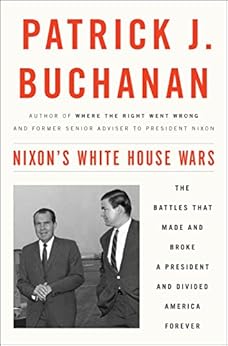Four days after he described Christine Blasey Ford, the accuser of Judge Brett Kavanaugh, as a "very credible witness," President Donald Trump could no longer contain his feelings or constrain his instincts.
With the fate of his Supreme Court nominee in the balance, Trump let his "Make America Great Again" rally attendees in Mississippi know what he really thought of Ford's testimony.
" 'Thirty-six years ago this happened. I had one beer.' 'Right?' 'I had one beer.' 'Well, you think it was (one beer)?' 'Nope, it was one beer.' 'Oh, good. How did you get home?'"
'I don't remember.' 'How did you get there?' 'I don't remember.' 'Where is the place?' 'I don't remember.' 'How many years ago was it?' 'I don't know. I don't know. I don't know. I don't know.'"
By now the Mississippi MAGA crowd was cheering and laughing.
Trump went on: "'What neighborhood was it in?' 'I don't know.' 'Where's the house?' 'I don't know.' 'Upstairs, downstairs, where was it?' 'I don't know. But I had one beer. That's the only thing I remember.'"
Since that day three years ago when he came down the escalator at Trump Tower to talk of "rapists" crossing the U.S. border from Mexico, few Trump remarks have ignited greater outrage.
Commentators have declared themselves horrified and sickened that a president would so mock the testimony of a victim of sexual assault.
The Republican senators who will likely cast the decisive votes on Kavanaugh's confirmation—Jeff Flake, Susan Collins, Lisa Murkowski—they all decried Trump's mimicry.
Yet, in tossing out the "Catechism of Political Correctness" and treating the character assassination of Kavanaugh as what it was, a rotten conspiracy to destroy and defeat his nominee, Trump's instincts were correct, even if they were politically incorrect.
This was not a "job interview" for Kavanaugh.
In a job interview, half the members of the hiring committee are not so instantly hostile to an applicant that they will conspire to criminalize and crush him to the point of wounding his family and ruining his reputation.
When Sen. Lindsey Graham charged the Democratic minority with such collusion, he was dead on. This was a neo-Bolshevik show trial where the defendant was presumed guilty and due process meant digging up dirt from his school days to smear and break him.
Our cultural elites have declared Trump a poltroon for daring to mock Ford's story of what happened 36 years ago. Yet, these same elites reacted with delight at Matt Damon's "SNL" depiction of Kavanaugh's angry and agonized appearance, just 48 hours before.
Is it not hypocritical to laugh uproariously at a comedic depiction of Kavanaugh's anguish, while demanding quiet respect for the highly suspect and uncorroborated story of Ford?
Ford was handled by the judiciary committee with the delicacy of a Faberge egg, said Kellyanne Conway, while Kavanaugh was subjected to a hostile interrogation by Senate Democrats.
In our widening and deepening cultural-civil war, the Kavanaugh nomination will be seen as a landmark battle. And Trump's instincts, to treat his Democratic assailants as ideological enemies, with whom he is in mortal struggle, will be seen as correct.
Consider. In the last half-century, which Supreme Court nominees were the most maligned and savaged?
Were they not Nixon nominee Clement Haynsworth, chief judge of the 4th Circuit Court of Appeals, Reagan nominee Robert Bork, Bush 1 nominee Clarence Thomas, and Trump nominee Brett Kavanaugh, the last three all judges on the nation's second-highest court, the District of Columbia Circuit Court of Appeals?
Is it a coincidence that all four were Republican appointees, all four were judicial conservatives, and all four were gutted on the grounds of philosophy or character?
Is it a coincidence that Nixon in Watergate, Reagan in the Iran-Contra affair, and now Trump in Russiagate, were all targets of partisan campaigns to impeach and remove them from office?
Consider what happened to decent Gerald Ford who came into the oval office in 1974, preaching "the politics of compromise and consensus."
To bring the country together after Watergate, Ford pardoned President Nixon. For that act of magnanimity, he was torn to pieces by a Beltway elite that had been denied its anticipated pleasure of seeing Nixon prosecuted, convicted and sentenced to prison.
Trump is president because he gets it. He understands what this Beltway elite are all about—the discrediting of his victory as a product of criminal collusion with Russia and his resignation or removal in disgrace. And the "base" that comes to these rallies to cheer him on, they get it, too.
Since Reagan's time, there are few conservatives who have not been called one or more of the names in Hillary Clinton's litany of devils, her "basket of deplorables"—racist, sexist, homophobic, xenophobic, Islamophobic, bigoted, irredeemable.
The battle over Kavanaugh's nomination, and the disparagement of the Republicans who have stood strongest by the judge, seems to have awakened even the most congenial to the new political reality.
We are all deplorables now.
COPYRIGHT 2018 CREATORS.COM
 Patrick J. Buchanan needs no introduction to VDARE.COM readers; his books State of Emergency: The Third World Invasion and Conquest of America, and Suicide of a Superpower: Will America Survive to 2025? are available from Amazon.com. Patrick J. Buchanan is the author of “The Greatest Comeback: How Richard Nixon Rose From Defeat to Create the New Majority.
Patrick J. Buchanan needs no introduction to VDARE.COM readers; his books State of Emergency: The Third World Invasion and Conquest of America, and Suicide of a Superpower: Will America Survive to 2025? are available from Amazon.com. Patrick J. Buchanan is the author of “The Greatest Comeback: How Richard Nixon Rose From Defeat to Create the New Majority.
His latest book, published May 9, is “Nixon’s White House Wars: The Battles That Made and Broke a President and Divided America Forever.”
See Peter Brimelow’s review: “Wheel And Fight”—Pat Buchanan’s Nixon Book Provides Road Map For Trump